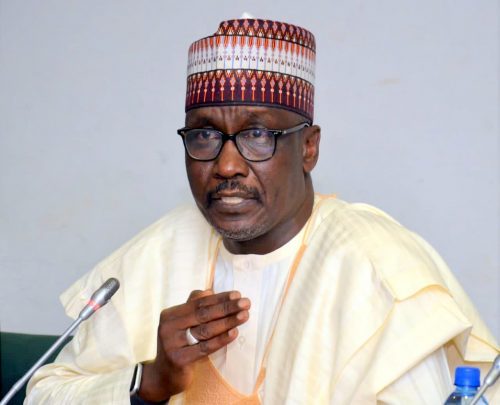Positive outcomes are being achieved in the fight against crude oil theft and pipeline vandalism in Nigeria, according to Mele Kyari, Group Chief Executive Officer of Nigerian National Petroleum Company (NNPC) Limited.
The head of NNPCL claims that better increase in the country’s crude oil output has resulted from the redoubled effort to combat the threat.
Kyari made this announcement yesterday during a courtesy visit to his office by General Christopher Musa, the Chief of Defence Staff (CDS).
In a statement signed by the Chief Corporate Communications Officer, NNPCL, Olufemi Soneye, the NNPCL boss, while encouraging the military to sustain the war against oil theft and pipeline vandalism, said: “I personally call for enhanced and sustained security engagement. This is because we have reached a new peak in production that we haven’t seen in the last three years. This is clearly related to the sustained efforts by the armed forces and other security agencies to protect our critical assets, particularly the pipeline infrastructure in specified areas where we are working closely with these agencies. We are already seeing the results transforming into increased production.”
Additionally, Kyari praised the CDS and his team for their steadfast dedication in recent months to safeguarding the country’s vital hydrocarbon assets, particularly in the Niger Delta region, stressing the importance of these accomplishments for both Nigeria and the international energy community.
He conveyed assurance that the CDS and his group will fulfil the President’s directive to lessen security-related obstacles that impact the country’s crude oil output.
“You are managing aspects of this endeavour that rely on security in an efficient manner. Especially in the Niger Delta, your well-thought-out and targeted reaction is opening the door for better security engagement,” he stated.
The Organisation of Petroleum Exporting Countries (OPEC) verified Kyari’s assertion of higher production output. Nigeria’s average daily crude oil output has been rising, according to OPEC, which gets its production statistics from two sources: secondary communication, such as energy intelligence platforms, and direct communication, i.e., from member countries.
Based on firsthand information, the oil cartel claimed that Nigeria’s oil output rose to 1.3 million barrels per day (bpd) in July, a 2.36 percent increase from 1.27 million bpd in June. But according to secondary sources cited by OPEC, Nigeria’s crude production rose by 0.74 percent to 1.38 million barrels per day (bpd) from 1.36 million barrels per day reported in June. With respect to Angola (909,000 bpd) and Congo (257,000 bpd), Nigeria has therefore maintained its lead over them as Africa’s top oil producer as a result of the current output number.
General Musa responded to Kyari by stating that the purpose of the visit was to acquaint the Monitoring Team with the NNPCl. The Monitoring Team would be in charge of liaising with the Company and other relevant parties in the regions that produce oil in order to safeguard the vital hydrocarbon infrastructure of the country.
The CDS stated that the military will continue the onslaught and assess the troops’ capabilities to improve performance and increase productivity, all the while reaffirming his commitment to enhancing security and troop performance.
Along with highlighting the necessity of increasing production for a thriving economy, the CDS informed host communities, state governments, private security firms, and intelligence agencies that their cooperation would result in improved performance.
“Working in silos won’t give us the best results. I want to assure you that we will collaborate with the necessary stakeholders to achieve our set targets as mandated by Mr. President,” Gen Musa said.




